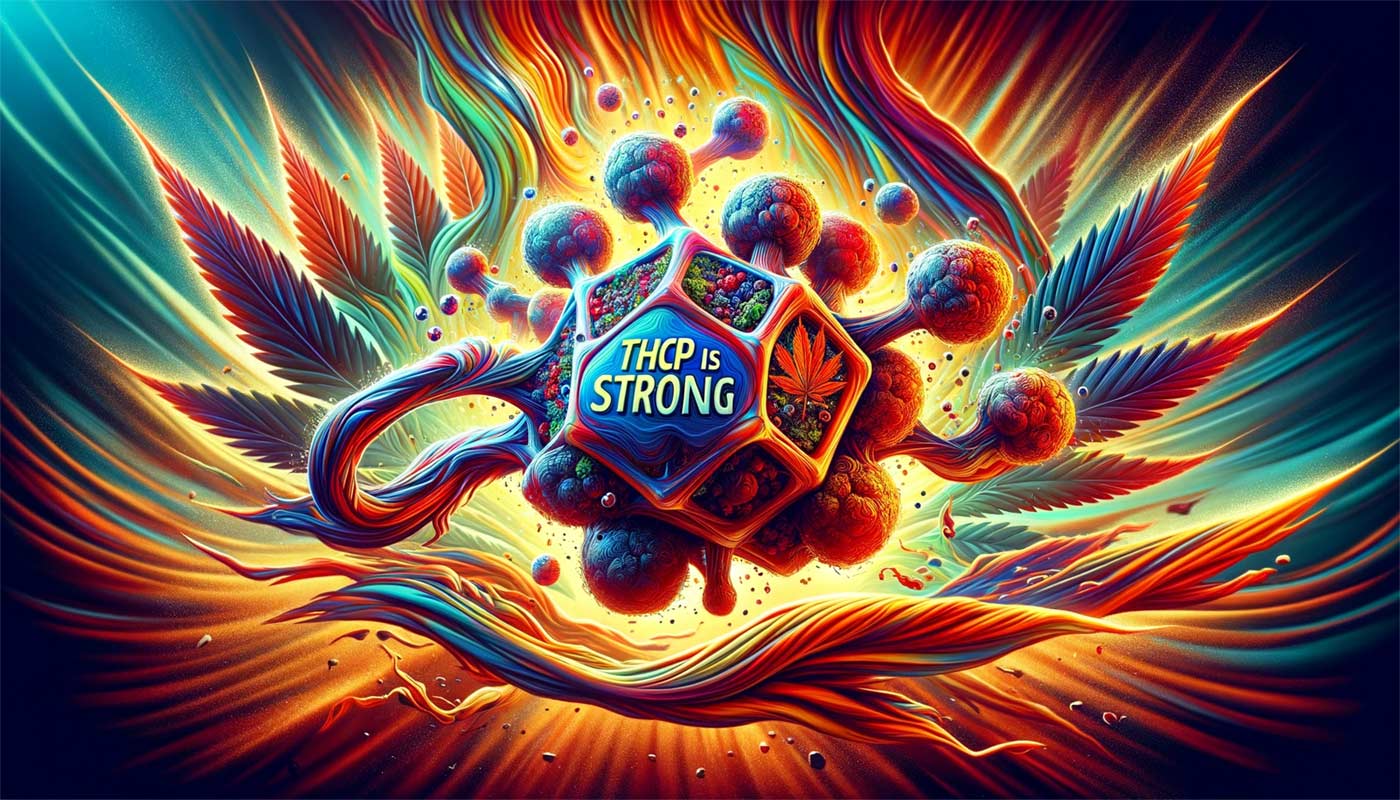THCP, or Delta-9-tetrahydrocannabiphoral, is a novel cannabinoid that has been making waves in the cannabis community for its extraordinary potency. It’s closely related to THC, the most well-known psychoactive compound in cannabis, but what sets THCP apart is its unique chemical structure and its remarkably high affinity for CB1 receptors in the endocannabinoid system.
The Chemical Structure of THCP
Understanding the Alkyl Side Chain
The secret to THCP’s strength lies in its molecular structure, particularly its alkyl side chain. This chain, which consists of seven carbon atoms, is longer than that of THC, which typically has five carbon atoms. This difference might seem minor, but it has a profound impact on how THCP interacts with the body’s endocannabinoid system.
Binding Affinity with Cannabinoid Receptors
THCP’s elongated side chain allows it to bind more effectively with CB1 and CB2 receptors in the brain and body. This enhanced binding affinity translates to a more potent psychoactive effect. In fact, research suggests that THCP can bind to these receptors with over 30 times the strength of THC.
Implications for Psychoactive Effects
The stronger binding of THCP to cannabinoid receptors means that even small amounts can produce significant psychoactive effects. This potency is not just theoretical; anecdotal reports from users confirm that THCP’s effects are noticeably stronger than those of THC.
The Rarity and Extraction of THCP
One of the reasons THCP has remained relatively unknown until recently is its rarity in natural cannabis plants. THCP is found in extremely low concentrations, making it a challenge to study and utilize.
The scarcity of THCP in cannabis plants means that extracting sufficient quantities for research or use is difficult and expensive. As a result, much of the THCP available today is synthesized in laboratories. This synthetic production raises questions about the purity and safety of THCP products.
Despite these challenges, THCP is beginning to appear in various cannabis products. However, its legal status remains uncertain in many regions, given its potent effects and synthetic nature. Consumers interested in trying THCP should be cautious and informed about the legal implications and potential risks.
Comparing THCP with Other Cannabinoids
THCP vs. THC
While THC is well-known for its psychoactive effects, THCP takes these effects to a new level. The increased potency of THCP means that it can produce stronger and potentially longer-lasting highs.
THCP and CBD
Unlike THC and THCP, CBD (cannabidiol) is non-psychoactive. CBD is known for its therapeutic benefits without the high. THCP’s introduction adds another layer to the complex interplay of cannabinoids and their effects on the human body.
Emerging Cannabinoids
The discovery of THCP is a reminder of the vast and largely unexplored world of cannabinoids. Each new cannabinoid discovered, like THCP, offers unique properties and potential applications, expanding our understanding of cannabis’s therapeutic and recreational potential.
Conclusion
THCP represents an intriguing new frontier in cannabinoid science, offering a glimpse into the vast potential of cannabis compounds beyond the well-known THC and CBD. As research continues to unfold, THCP could become a significant player in both recreational and medicinal cannabis market.

